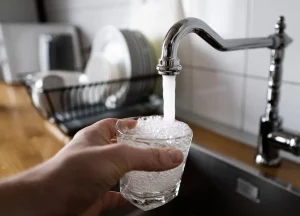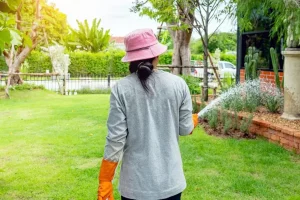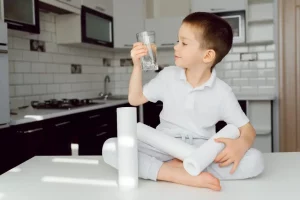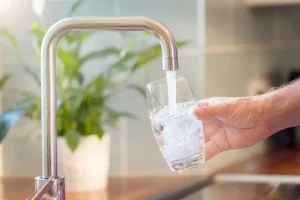What is softened water?
Softened water refers to water that has low or no calcium and/or magnesium content. Hard water is caused by calcium and magnesium, as you will probably remember from our articles about water softening. Water softeners typically use “ion exchange” as a method to remove these minerals. This involves flushing the water source through a salt solution, which swaps hardness minerals for salt. Softened water may contain salt ions that are not sufficient to taste, but it is not suitable for plants.
Is softened water safe to use on plants?
All depends on whether salt is used in the softening process. Salt-based water softeners make softened water by replacing hardness ions with sodium ions (salt). Even though it is unlikely that plants will be harmed by its short-term use, long-term usage could have undesirable consequences.
Salt-softened water often contains low amounts of salt. This can cause problems with the plants’ ability to retain water. The plants are tricked by the accumulated salt to believe they have taken in more water, which can lead to them becoming thirsty.
Salt can buildup in soil, making it more difficult for future plants. Because salinity acts as a drought on plants, stopping their roots from carrying water from the soil to other parts of the plant structure that are needed for growth.
Salts in soil can absorb water. This results in less water available for plants to take in, which increases water stress and root dehydration.
High salt levels can also affect the germination process and cause stunted growth, small-than-usual plants, marginal necrosis, or other problems.
Excessive salt can cause more harm to plants depending on what kind of plants they are.
How salt-softened water can affect plants
Different plants are affected by salt in different ways. Salt can affect different plants in different ways. Some plants are more sensitive to salt while others cannot function at low levels of salt exposure. Here are some examples of common plants and how salt in softened waters may affect them.
Vegetable gardens. As we have already mentioned, salt-using water softeners may make it harder for plants to absorb moisture. Salt can also cause damage to plants if they are exposed to too much salt. They may develop symptoms such as delayed buds breaking, leaf drop off early, nutritional deficiencies, reduced strength, and decreased stem growth.
Flowers: Research has shown that salt in soil can adversely affect plant cells. This causes the leaves to turn yellow and the flowers grow smaller. Even though there isn’t much salt in softened waters, it can cause a decrease in the beauty and health of flowering plants.
Salt-softened water is best for house plants. The level of salt in your water can vary depending on the hardness of your home. Salt deposits can form faster in house plants because they have very little soil. This can cause damage to the roots and other parts of the plant. It can be hard to correct the damage because you won’t know the amount of salt in the softened water.
Trees: Since most trees are large by nature, how can softened water contain small amounts of salt that could cause damage? Trees can be damaged by soil salts and evergreen needles. There are many discussions on whether salt-softened water has an effect on trees. However, if you are concerned about long-term effects, you can turn off the softener when you water your plants.
Salt-softened water can harm aquatic plants. Experts think that this could be harmful to some fish. However, softened water can still be beneficial for some species of fish and plants. Salt can cause problems with the delicate salt balance that is recommended for decorative ponds and aquariums.
How do you know if your water has a hard or soft taste?
You can check your water quality by looking around and reviewing recent events in your house. Are you noticing soap scum buildup that doesn’t seem to go away no matter how hard you scrub it? Do you have dry hair, cracked hair, or skin that isn’t responding to your favourite shampoos or lotions? These are all signs that your water is likely to be hard.
Other signs that your water is hard include a white residue on your showerheads or faucets, and a lack of lather in your shampoos and soaps. These signs can all be indicative of hard water in your house, but it is best to have a water test done. A water test can tell you if your water is hard or soft.
You can test the water for hardness using a DIY kit that you can buy online, at your local hardware store, or from a municipal water source. You can also ask your local water supplier for the hardness of the water they deliver. Request a copy their most recent water quality report. You can send a sample of your water to a local lab for testing in order to get more precise results, but it may take some time.











